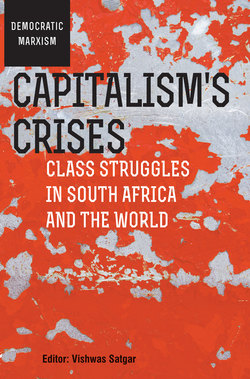Читать книгу Capitalism’s Crises - Alfredo Saad-Filho - Страница 2
На сайте Литреса книга снята с продажи.
ОглавлениеDEMOCRATIC MARXISM SERIES
Series Editor: Vishwas Satgar
The crisis of Marxism in the late twentieth century was the crisis of orthodox and vanguardist Marxism associated mainly with hierarchical communist parties, and which was imposed ― even as state ideology ― as the ‘correct’ Marxism. The Stalinisation of the Soviet Union and its eventual collapse exposed the inherent weaknesses and authoritarian mould of vanguardist Marxism. More fundamentally, vanguardist Marxism was rendered obsolete but for its residual existence in a few parts of the world, including authoritarian national liberation movements in Africa and in China.
With the deepening crises of capitalism, a new democratic Marxism (or democratic historical materialism) is coming to the fore. Such a democratic Marxism is characterised in the following ways:
Its sources span non-vanguardist grassroots movements, unions, political fronts, mass parties, radical intellectuals, transnational activist networks and the progressive academy;
It seeks to ensure that the inherent categories of Marxism are theorised within constantly changing historical conditions to find meaning;
Marxism is understood as a body of social thought that is unfinished and hence challenged by the need to explain the dynamics of a globalising capitalism and the futures of social change;
It is open to other forms of anti-capitalist thought and practice, including currents within radical ecology, feminism, emancipatory utopianism and indigenous thought;
It does not seek to be a monolithic and singular school of thought but engenders contending perspectives;
Democracy, as part of the heritage of people’s struggles, is understood as the basis for articulating alternatives to capitalism and as the primary means for constituting a transformative subject of historical change.
This series seeks to elaborate the social theorising and politics of democratic Marxism.
